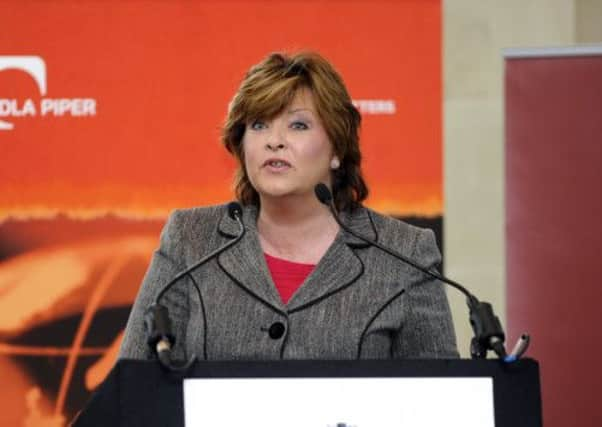Fiona Hyslop: ‘Arts are not a commodity’


Fiona Hyslop said there were “fundamental and profound” contrasts between the approach of the Holyrood and Westminster governments to culture, claiming the arts would “flourish” under independence.
In a keynote speech at the Talbot Tice Gallery in Edinburgh, she said said the UK Government’s recent call for arts organisations to focus on the economic impact of their work was badly flawed and “reductive thinking.”
Advertisement
Hide AdThe comments come a year after artists kick-started a major rebellion over the running of Scotland’s flagship arts agency.
Last night Ms Hyslop insisted they no longer had to make an economic or social case to justify public funding.
She argued the economic value of culture was a “secondary benefit” and said the different approaches to the arts in Edinburgh and London reflected the “choice of two futures” facing Scotland.
Her speech came months after the chair of national arts agency Creative Scotland, Sir Sandy Crombie, told protesting artists that they had to justify investment in the arts. The quango’s chief executive, Andrew Dixon, resigned in December and has yet to be replaced.
Sir Sandy said back in October: “They who provide the money have a right to ask what will result from that investment.”
An open letter to Sir Sandy had described Creative Scotland as “an organisation with a confused and intrusive management style married to a corporate ethos that seems designed to set artist against artist and company against company in the search for resources.”
Advertisement
Hide AdMs Hyslop admitted the debate over the handling of the arts and cultural sector in Scotland had been “difficult and challenging,” but also “thought-provoking and testing.”
She said it was not for governments “to tell artists what to paint or authors what to write or craftspeople what to fashion.”
Advertisement
Hide AdMs Hyslop also used her speech to launch an outspoken attack on her Westminister counterpart, Maria Miller, in the wake of her controversial speech at the British museum in April.
Ms Miller had said: “British culture is perhaps the most powerful and most compelling product we have available to us. The most compelling platform upon which we can stand. In an age of austerity, when times are tough and money is tight, our focus must be on culture’s economic impact.”
But Ms Hyslop said: “Of course the culture and heritage sectors make an invaluable contribution to our economic life, but despite these challenging times, we do not measure the worth of culture and heritage solely in pounds and pence – we value culture and heritage precisely because they are so much more, because they are our heart, our soul, our essence.
“This government does not look at our cultural life and heritage as if they are merely products that can be bought and sold.
“If there was ever a way to suck the vitality out of a topic that should energise, invigorate, inspire and move – it is to make a perfunctory nod to generic social benefits and then, in the ext breath, reduce it to nothing more than a commodity.”
Scottish Labour’s culture spokeswoman, Patricia Ferguson, said: “Scotland’s arts and culture sector is second to none. However I think the culture secretary’s claims amount to nothing more than misdirection.
Advertisement
Hide Ad“We already have a national agency representing culture and arts and festivals up-and-down the country that attract visitors in their thousands from around the globe.
“There’s nothing in her comments that actually show how this sector would be better represented under independence. It’s also verging on hypocrisy that she cites the a focus on economic benefits from a UK perspective when their showpiece Homecoming celebrations were very much about the bottom line.”
Advertisement
Hide AdA spokesman for Maria Miller said: “At a time of austerity, when it is clear that public spending needs to be reduced, it is essential that the cultural sector demonstrates the enormous economic impact it has, alongside the unquestionable social benefits it brings.
“To suggest otherwise is naïve in the extreme and, ultimately, does little to help the arts’ cause.
“Fiona Hyslop’s misrepresentation of the Government’s position on this matter is deliberate and enormously disappointing.”